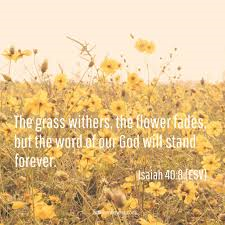Sunday is the 2nd Sunday in Advent as we prepare for the coming of the Lord. A memo to preachers.
Suidas, the tenth-century AD Greek lexicographer, said, ‘A herald is in time of war what an ambassador is in peace.’ The herald would go into ‘enemy territory ahead of an advancing army to warn the enemy of certain destruction unless they accepted the proffered terms for peace.’ Therefore, the king would invest the herald with power ‘either [to] accept surrender on behalf of his king or to declare war if those terms were rejected.’ The herald’s authority is completely derived and is legitimate only to the degree that he faithfully represents the one who sent him.
Martin Luther –
At the end of his lectures in 1531, Luther uttered a brief prayer and then dictated two Scriptural texts. The prayer; “The Lord who has given us power to teach and to hear, let Him also give us the power to serve and to do.”
LUKE 2 – Glory to God in the highest, And on earth peace, Good will to men.
ISAIAH 40 – The Word of our God shall stand forever.
Luther’s belief in the Biblical assertion that the word of God would stand forever does not mean that he believed that people would always believe it. He listed all the places in the world where the Gospel had sped on and conquered and people believed and how after about a generation it all faded away and the people became pagan. I have been reading and hearing more and more there is talk of a “churchless Christianity and a Christless Church.” How is that possible if the Word of the Lord stands forever? If most Christians have forsaken the public worship of the church at least in America, and the people who do go to church are going to hear a therapeutic “Jesus is your life coach” sermon are we not by Suidas definition both ambassadors and heralds? How does our understanding of the distinction between the Law and the Gospel engaged here?
Luther’s list of these particular verses is important because the Prophet Isaiah gives us the wonderful prediction of the Messiah’s special precursor (40: 3-8). He gives us the theme that we dare not speak until spoken to. John the Baptizer preached what he was prepared and given to preach before he was born. The modern day preacher is in the same boat. We dare not preach unless we are called and we dare not preach what we want to but what God compels us to.
John the Baptist will forcefully proclaim and herald what Isaiah does poetically. The self satisfied can remain self satisfied only when they force from their minds that they are “Grass”. The grass withers and the flowers fade and the Baptist will declare that it gets burned up. Self satisfaction in the face of annihilation is pathological. We are confronted in these texts by the sickness persistent and rampant in life. Isaiah changes our usual formula by pronouncing “comfort” and forgiveness before telling us that we are grass that will fade.


